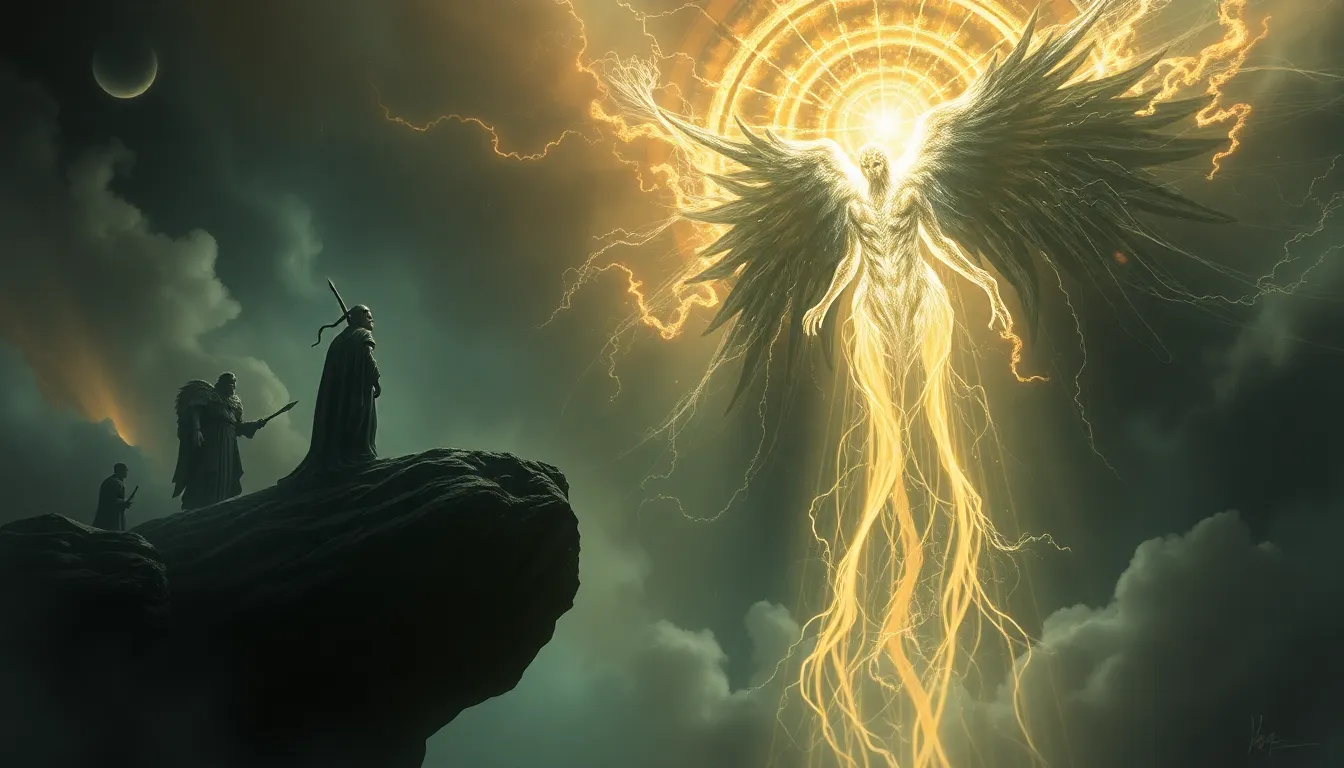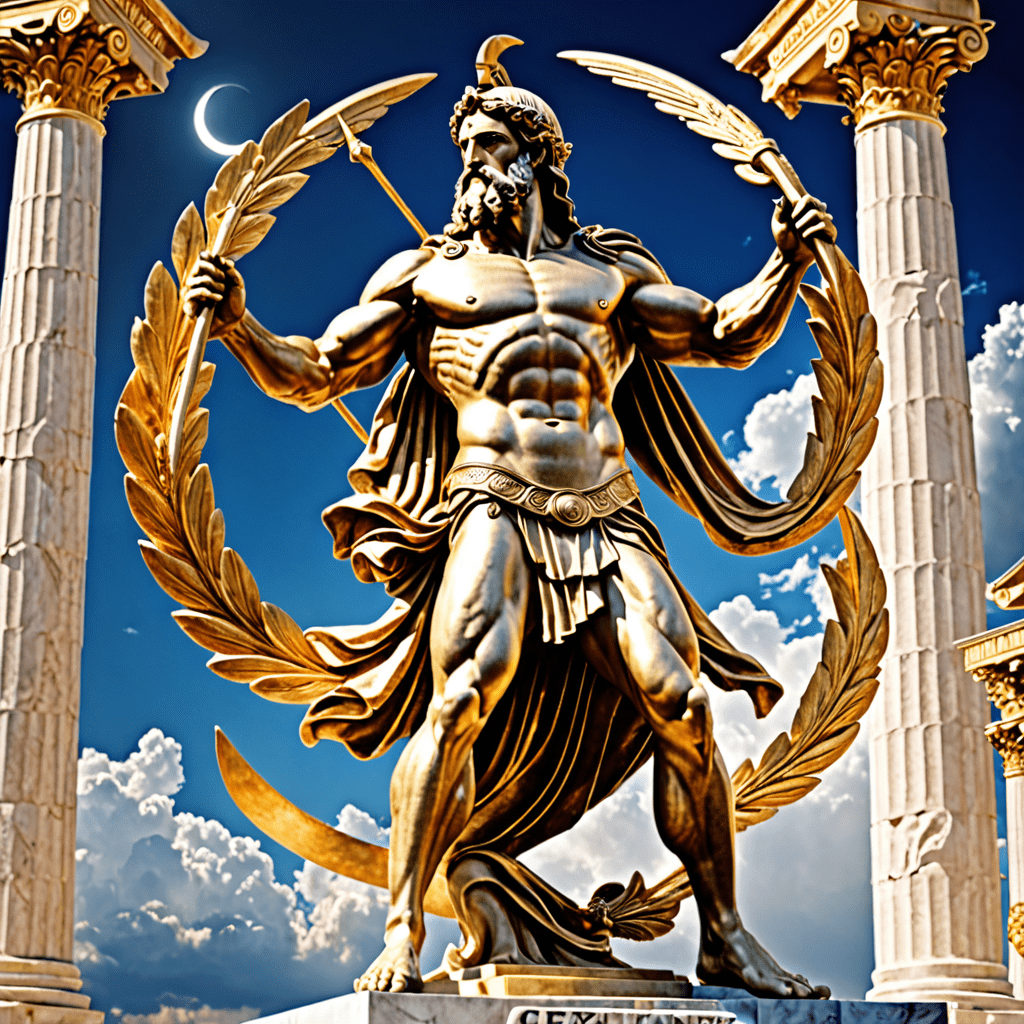The Price of Hubris: Legendary Tales of Divine Punishments
Introduction: Understanding Hubris and Divine Punishment
Hubris, a concept deeply rooted in mythology and literature, refers to excessive pride or self-confidence that often leads to one’s downfall. It is frequently portrayed as a fatal flaw in individuals who overestimate their abilities or defy the gods. In many cultures, this arrogance is met with divine retribution, a concept known as divine punishment, where higher powers impose consequences for human transgressions.
The exploration of legendary tales involving hubris serves to illuminate the moral lessons embedded within these narratives. These stories remind us that pride can lead to catastrophic outcomes, and understanding these tales helps us navigate the complexities of human behavior and ethics.
The Origins of Hubris in Ancient Cultures
Hubris has its roots in ancient cultures, with Greek mythology being a primary source of stories illustrating the consequences of excessive pride. The Greeks viewed hubris as a severe offense against the gods, who were quick to respond with punishment. However, this concept extends beyond Greece; various cultures have their interpretations of hubris and divine retribution.
- Mesopotamian Culture: In Mesopotamian mythology, figures like Gilgamesh display hubris when they challenge the gods, often facing dire consequences.
- Egyptian Culture: Egyptian tales, such as those of Pharaohs who considered themselves divine, illustrate the peril of hubris and the inevitable downfall that follows.
- Norse Culture: In Norse mythology, characters like Loki exemplify hubris, leading to their punishment by the gods and the eventual Ragnarok.
In all these cultures, the gods play a crucial role in maintaining moral order, ensuring that hubris does not go unchecked.
Prominent Examples of Hubris in Greek Mythology
Greek mythology offers numerous examples of hubris, showcasing individuals whose excessive pride led to their ruin. Here are three prominent tales:
- The Tale of Icarus: Icarus, the son of Daedalus, ignored his father’s warnings and flew too close to the sun, melting the wax holding his wings together. His ambition ultimately led to his tragic fall.
- King Oedipus: In his quest for truth, Oedipus defies the prophecy that he would kill his father and marry his mother. His relentless pursuit of knowledge and refusal to heed warnings lead to devastating consequences.
- Arachne: Arachne, a skilled weaver, boasted that she could surpass the goddess Athena. After losing a weaving contest, her hubris resulted in her transformation into a spider as punishment for her pride.
Divine Punishment: The Mechanisms of Retribution
The methods of divine punishment in these tales are varied, often reflecting the nature of the hubris displayed. Common mechanisms include:
- Physical Transformation: Many characters face transformations that symbolize their moral failings, such as Arachne becoming a spider.
- Public Humiliation: Some figures are subjected to public disgrace, serving as a cautionary tale for others.
- Tragic Downfall: Characters like Oedipus experience a complete reversal of fortune, highlighting the dramatic consequences of their pride.
These punishments serve as moral lessons, emphasizing the importance of humility and respect for the divine order.
Hubris in Roman Mythology: A Comparative Study
Roman mythology also features notable figures who exhibit hubris, such as Julius Caesar, whose ambition led to his assassination. The Roman pantheon, much like the Greek, punished arrogance and pride through various means:
- Divine Retribution: The gods would intervene directly, leading to the downfall of those who overstepped their bounds.
- Public Disgrace: Similar to Greek tales, Romans often faced ridicule and downfall in the public eye.
This cross-cultural exploration of hubris and punishment reveals a universal understanding of the consequences of excessive pride and the importance of accountability.
Eastern Perspectives on Hubris: Hindu and Buddhist Narratives
In Eastern cultures, the concept of hubris is often intertwined with the idea of karma. In Hinduism, actions have consequences, and hubris can lead to severe repercussions. A notable example is:
- Ravana: The demon king from the Ramayana, Ravana’s hubris in abducting Sita leads to his eventual destruction by Rama, illustrating the consequences of pride.
Buddhism also teaches about pride and its consequences, emphasizing the importance of humility and the dangers of ego-driven behavior.
Modern Interpretations of Hubris and Divine Punishment
Contemporary literature and film frequently adapt classical tales of hubris, showcasing characters who embody these traits. Modern examples include:
- Movies: Films like “Icarus” and “The Great Gatsby” explore themes of ambition and the resulting consequences.
- Literature: Novels often feature protagonists whose hubris leads to their downfall, echoing the ancient tales.
The relevance of these themes persists, as they continue to resonate with audiences and highlight the timeless struggle between pride and humility.
Psychological Insights: The Human Condition and Hubris
From a psychological perspective, hubris is linked to various theories related to pride and arrogance. These traits can significantly impact personal relationships and societal structures. Key insights include:
- Impact on Relationships: Hubris can lead to conflicts and breakdowns in communication.
- Societal Structures: Arrogance in leadership can result in poor decision-making and societal harm.
Real-life examples of hubris, such as corporate scandals, illustrate the consequences that arise when individuals fail to recognize their limitations.
The Role of Hubris in Contemporary Moral Discourse
Tales of hubris inform our understanding of ethics and morality today. Discussions surrounding accountability and the consequences of arrogance in leadership are more pertinent than ever. Key lessons include:
- Importance of Humility: Recognizing one’s limitations is vital in personal and professional settings.
- Accountability: Leaders must be held accountable for their actions to prevent the detrimental effects of hubris.
The enduring nature of these legendary tales serves as a reminder of the importance of humility in navigating the complexities of modern life.



